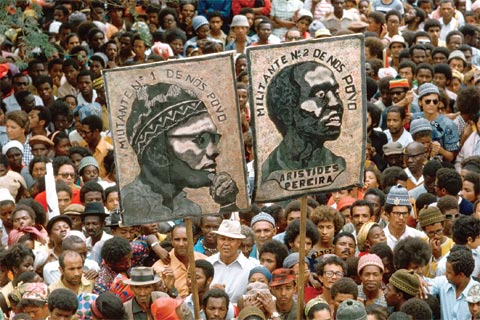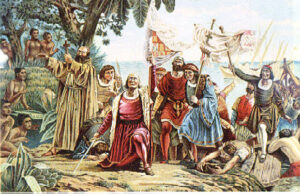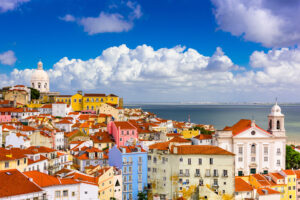The Portuguese colonial struggle for independence is a major story of decolonization. Nationalist aspirations, political shifts, and global change drove these mid-20th-century movements for decades. This study examines the origins, events, and outcomes of the Portuguese colonial independence movement.
Global Change and Nationalism
The decline of European power after World War II and the rise of nationalist movements in Africa, Asia, and Latin America led to widespread decolonization in the mid-20th century. International organizations such as the United Nations promoted self-determination and independence, shaping decolonization around the world.
The Salazar regime’s refusal to relinquish colonial control over Portugal stood in contrast to these global trends. Despite mounting pressure for independence within and outside the colonies, the new national regime of Antonio de Oliveira Salazar preserved the empire.
Mozambique’s origins and early resistance
The resistance movement of the early 1960s formed Mozambique’s struggle for independence. Three nationalist groups – Frelimo, Patriotic Front and Frelimo – led the liberation struggle. They wanted to end Portuguese colonial rule and establish an independent Mozambique.
FRELIMO was founded in 1962 and led the struggle for independence. With support from Tanzania and Zambia, Frelimo waged a guerrilla war against the Portuguese army led by Eduardo Mondlane and Samora Machel.
Liberation and war of independence
In the 1960s and 1970s, Mozambique’s war for independence escalated. The conflict was characterized by fierce fighting and local support. Due to international pressure and military weakness, the Portuguese government struggled to gain control of the colony.
On 25 June 1975, the Portuguese Carnation Revolution put an end to the new state power and Mozambique became independent. FRELIMO became the new government and Samora Machel became the first president in the peaceful independence process.
Early Nationalist Movements
Nationalist movements and wars shaped Angola’s independence. MPLA, UNITA and the National Liberation Front are the main liberation groups. These groups wanted national self-determination and an end to Portuguese colonialism.
The MPLA, founded in 1956, is the best-known nationalist group. Led by Agostinho Neto, the MPLA tries to unite Angolan factions and gain international support.
Liberation and Independence Struggle
Angola’s struggle for independence was long and bloody. During the Angolan War of Independence, there were battles between nationalists and Portuguese troops. The conflict was further complicated by the involvement of neighboring countries and superpowers.
Angola gained independence on November 11, 1975, after the Portuguese Carnation Revolution. A decades-long civil war followed, in which nationalist groups fought for power. The MPLA became dominant and Agostinho Neto became the first president of Angola.
Political movements and early resistance
The nationalist movement led by the African Party for the Independence of Guinea and Cape Verde pushed for the independence of Guinea-Bissau. The PAIGC, founded in 1956 by Amilcar Cabral, played a crucial role in promoting independence and fighting the Portuguese colonial power through guerrilla warfare.
Political activity and armed resistance characterized the PAIGC struggle. The party sought international and neighboring support when it launched its revolutionary movement in Guinea-Bissau.
Struggle and independence
Guinea-Bissau’s war of independence was long and extremely fierce. Other African and socialist countries helped the PAIGC in its resistance to Portuguese colonial rule.
Guinea-Bissau became independent on September 24, 1973, but this was recognized by the Portuguese Carnation Revolution. During the transition to independence, the PAIGC took control of the territory and Amilcar Cabral led the effort to shape the new nation.
Nationalist Movements and Struggles in Cape Verde
Cape Verde and Guinea-Bissau were both under the same colonial rule, so their struggles for independence were intertwined. Within the Cape Verdean independence movement, the PAIGC promoted self-determination and political change.
Political activities and the rights of islanders are at the heart of Cape Verdean independence. The PAIGC fought for the decolonization of Portuguese Africa, including Cape Verde.
Independence and for its remaining colonies. Nationalist movements in Africa and Asia took power after the revolution ended Portugal’s colonial empire.
The Decolonization Process
The Carnation Revolution led to negotiations and agreements with nationalist movements for decolonization. The Portuguese colonies gained independence peacefully, but political and social issues arose.
Years of struggle and resistance culminated in Mozambique, Angola, Guinea-Bissau, and Cape Verde’s independence. The new nations had to build nations and establish stable governments after colonial rule.
Legacy of Independence Movements
Impact on Former Colonies Portuguese colonial independence movements shaped newly independent nations. Transitioning from colonial rule to self-determination had pros and cons. Former colonies faced governance, economic development, and social integration as they built nations.
The independence movements left diverse and vibrant cultures in newly independent nations. Independence struggles and nation-building shaped national identities and political systems.
Impact on Global Decolonization
Portuguese decolonization was part of the global decolonization trend that reshaped 20th-century politics. The end of Portuguese colonial rule helped European colonial empires collapse and new nations emerge.
The decolonization of Portuguese colonies affected international relations and global diplomacy as newly independent nations sought to assert their positions. These movements continue to influence global politics and international relations.
Conclusion
The Portuguese colonial independence movements were important in decolonization. These movements reshaped African and global politics due to nationalist aspirations and global changes. Independent nations emerged from armed resistance, political activism, and international support, ending Portugal’s colonial empire. These movements still shape global politics and former colonies’ cultures.



